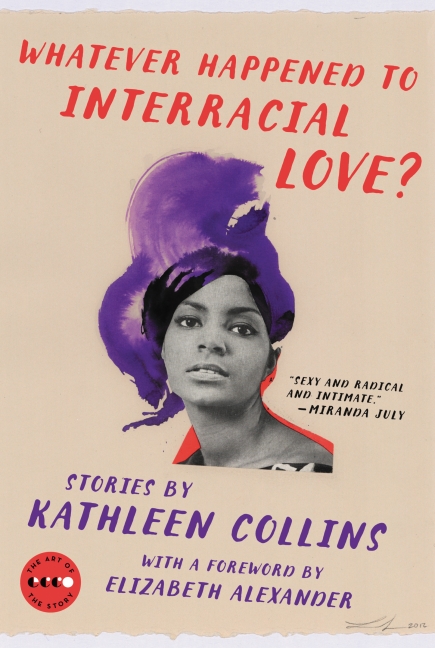Destined to Witness: Growing Up Black in Nazi Germany
HarperCollins
480 pages
2001
ISBN: 9780060959616
Hans J. Massaquoi (1926-2013)

This is a story of the unexpected. In Destined to Witness, Hans Massaquoi has crafted a beautifully rendered memoir—an astonishing true tale of how he came of age as a black child in Nazi Germany. The son of a prominent African and a German nurse, Hans remained behind with his mother when Hitler came to power, due to concerns about his fragile health, after his father returned to Liberia. Like other German boys, Hans went to school; like other German boys, he swiftly fell under the Fuhrer’s spell. So he was crushed to learn that, as a black child, he was ineligible for the Hitler Youth. His path to a secondary education and an eventual profession was blocked. He now lived in fear that, at any moment, he might hear the Gestapo banging on the door—or Allied bombs falling on his home. Ironic, moving, and deeply human, Massaquoi’s account of this lonely struggle for survival brims with courage and intelligence.
Prologue
To write of ones self, in such a manner as not to incur the imputation of weakness, vanity, and egotism, is a work within the ability of hut few; and I have little reason to believe that I belong to that fortunate few.
—Frederick Douglass
I could not agree more wich the above sentiments, expressed so eloquently over a century ago by the great abolitionist in the preface to his autobiography, My Bondage, My Freedom. If, like Mr. Douglass, I nonetheless decided to risk being thought of as weak, vain, and egocentric by making public the story of my life, it was mainly because of the persistent urging of persons whose literary judgment I felt was above reproach, such as my longtime friends Alex Haley, the author of Roots; Ralph Giordano, of Cologne, Germany, author of Die Bertinis; and my former employer and mentor. Ebony publisher John H. Johnson. Each convinced me that my experiences as a black youngster growing into manhood and surviving in Nazi Germany—an eyewitness to, and frequent victim of, both Nazi racial madness and Allied bombings—followed by my years in Africa were so unique that it was my duty as a journalist to share this rather different perspective on the Holocaust. Alex felt that because I was both an insider in Nazi Germany and, paradoxically, an endangered outsider, I had a rare perspective on some of the Third Reich’s major catastrophic events. He also urged me to record my equally unique experience of finding my own African roots.
Four fundamental aspects set the private hell I endured under the Nazis apart from both the pogroms suffered by my Jewish compatriots in Germany and from the racial persecution inflicted on my African-American brothers and sisters in the United States.
As a black person in white Nazi Germany, I was highly visible and thus could neither run nor hide, to paraphrase my childhood idol Joe Louis. Unlike African-Americans, I did not have the benefit of inherited survival techniques created and perfected by countless ancestors and passed down from generation to generation of oppressed people. Instead, I was forced to traverse a minefield of potential disasters and to develop my own instincts to tell me how best to survive physically and psychologically in a country consumed by racial arrogance and racial hatred and openly committed to the destruction of all “non-Aryans.”
Nazi racists, unlike their white American counterparts, did not commit their atrocities anonymously, disguised in white sheets and under the protection of night. Nor did they operate like some contemporary American politicians who advance their racist agendas by dividing black and white Americans with cleverly disguised code words about “unfair quotas,” “reverse discrimination,” and “states’ rights.” Racists in Nazi Germany did their dirty work openly and brazenly with the full protection, cooperation, and encouragement of the government, which had declared the pollution of Aryan blood with “inferior” non-Aryan blood the nation’s cardinal sin. For all practical purposes—except for the courageous and unflagging support I received from my German mother, who taught me to believe in myself by believing in me and my potential—I faced the constant threat that Nazi ethnic-cleansing policies posed to my safety alone. I faced this threat without the sense of security and reeling of belonging that humans derive from being members of a group, even an embattled one. Because of the absence of black females and the government-imposed taboo of race mixing, I had no legal social outlet when I reached puberty. Unlike the thousands of Africans and so-called “brown babies”—children of black GI fathers and German mothers—who reside in the Federal Republic of Germany today, there simply was no black population to speak of in Germany during the Hitler years, certainly none that I encountered. Not until long after the war did I learn that a small number of black Germans—the tragic so-called “Rhineland bastards” fathered by World War I French and Belgian colonial occupation troops—were exterminated in Hitler’s death camps.
Because Germans of my generation were expected to be fair skinned and of Aryan stock, it became my lot in life to explain ad nauseam why someone who had a brown complexion and black, kinky hair spoke accent-free German and claimed Germany as his place of birth. So let me state here once again, for the record, that I was born in 1926 in Hamburg, Germany’s second-largest city, because my grandfather, then consul general of Liberia to Hamburg, had brought with him his sizable family. His oldest son became my father after an intense courtship with my mother, a German nurse. Shortly before Hitler’s rise to power, my grandfather and father returned to Liberia, leaving my mother and me to fend for ourselves in an increasingly hostile racist environment…









